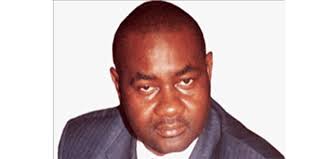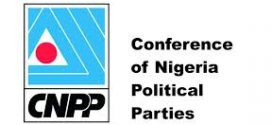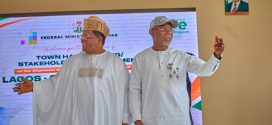Magnus Abe
I have said it before, and I want to repeat: Nigeria is morally broke. Nigeria as a nation in its present state is morally bankrupt. I have not heard anyone dispute that assertion. For those who would want to dispute this assertion, I will give two simple examples. Any country where we can have the revelations of the Ekiti tape, where you can hear the leaders of the country actively plan and participate in a felony and there is no sense of outrage and no one resigns is a society that has gone morally numb and is morally broke. Any country where its public officials can act against its own rules, collect over 700 million Naira illegally from its unemployed children, wherein some of the children were killed and buried in the name of job interviews by the state, and nothing happened, no one resigned, no one was prosecuted or nothing happened except silence, is also morally bankrupt.
That we are at present morally broke is not in doubt; the question as I understand is that are we also financially broke?
For the record, I have never believed in Okonjo-Iweala’s or the World Bank’s definition of growth. No matter what the statistics may say, growth is not just the number of private jets parked at our airports. Growth is not the figures we get when we rebase the economy and claim our economy is now larger than South Africa’s. The individual citizen is the true measure of the prosperity of a nation. How many ordinary Nigerians apart from those I will call the ruling elite, (the political, economic , religious, and traditional leaders) have actually seen their own lives and those of their children grow in our present economic growth?
It is the growth in the quality of living of these ordinary Nigerians that is real growth. Real economics is nothing but common sense and simple mathematics, the kind my late mother would call “sum”. At the end of the day the finance minister and her World Bank people would know they have failed when they are unable to convince ordinary house wives in Wuse market that there is “growth” in the Nigerian economy.
By the way my late mother never went to school. She had no primary school certificate but she could read her Bible in Igbo, and she knew her “sum” enough to conduct her petty trading and subsistence farming. She knew when we were broke which was quite often. She knew how many mouths were in her household and what it would take to keep us fed and supplied at subsistence level. She could make effective and common sense projections on my late father’s income as a priest in the Anglican Church.
When my father became a member of the Rivers State House of Assembly and we had our own “excess crude” she was smart enough to know that the good times might not last forever. She did not go to war with my father to force him to save money or establish a family sovereign wealth fund. She simply saved money from whatever bits and pieces of our new found prosperity and “growth” that came her way. When predictably the bubble bust with a collapse of oil prices and the return of the military she was the only one in the family that could always come up with the odd five Naira or three Naira when all hope seemed lost. She did not go school but she understood common sense economics.
I have nothing but the greatest respect for Ngozi Okonjo-Iweala. She is one of the few top personalities I know that can actually serve as an example to our country of the humility and approachability that should define public service. But having finished with the professors at Harvard and the World Bank, it is time for Ngozi to go back to the markets and farmlands of Nigeria to ask our mothers and traders a thing or two about real economics. This economy, whatever growth it is projecting, is not getting to those who need it the most and Nigerians are suffering. In very simple terms ordinary Nigerians are broke. The finance minister can write a treatise to define if Nigeria is broke, when an economy is broke, and what it means to be broke.
But the ordinary Nigerian does not have that luxury. They know that ministers and politicians driving around with paid security escorts may find time to engage in that debate, but the poor can’t. There are bills to be paid that they cannot meet them within their incomes. There are goods in shops and stalls that cannot be sold either because no one will buy them or because it simply makes no sense to sell them at the price at which people want to buy them.
These ordinary citizens are the Nigerian economy. It is how they live and feel about our country and our economy that is the real barometer of our growth. And they are broke.
The funny thing is that they know it. For them, being broke has immediate and visible consequence; it is desperation, harassment from landlords, miserable children, unpaid school fees, debt, marital problems and more misery.
Nigerians are getting smarter than we know. I was in the yam section of Bori market a few days ago looking for votes, and I was warmly welcomed in the market because I have been going there before this campaign season (I don’t know what kind of reception Ngozi will get in Balogun or Wuse market) but I really do recommend a visit.
The traders told me point blank they don’t want anymore micro credit from any politician, they want real solutions to their problems. There is low demand for everything, nobody seems to have cash to pay for his or her goods. They are broke and they are miserable. They want something to be done. Our economy is not growing when one man flies in a private jet and eats one tuber of yam. Our economy is growing when fifty million Nigerians can ride the bus and eat a slice of yam each.
That is when the yam seller can sell thousands of yams. If they can’t sell their wares no matter what the world bank says, no matter the number of times we rebase the economy they will still be broke. If the citizens are broke then Nigeria is broke. Period.
The problem with the Nigerian economy is that money is in few hands and it is not moving. If we need to call the World Bank to figure out how to force the wealth in our country to circulate into more hands then let us call them, but we should be smart enough to tell them what our own peculiar challenges are so they can help us prescribe a Nigerian solution.
The debate about the state of our economy can go on ad infinitum, but the patience of our people may run out before the debate ends. Something needs to be done while we continue the debate.
• Senator Abe represents Rivers South East Constituency in the National Assembly
 Hottestgistnaija.com
Hottestgistnaija.com





